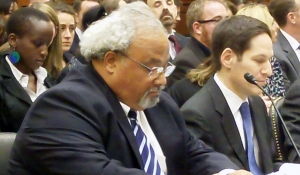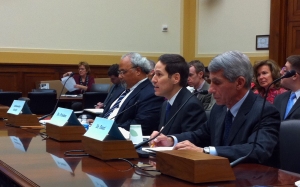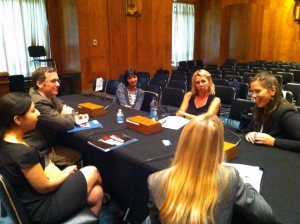Wednesday morning, September 29, the controversy over the Obama approach to funding AIDS programs will get a full airing during a congressional hearing on U.S. global AIDS policy.
At 9:30 a.m., the House Committee on Foreign Affairs will hold a hearing entitled “PEPFAR: From Emergency to Sustainability and Advances Against HIV/AIDS,” in room 2172 of the Rayburn House Office Building.
Be sure to tune in to the live webcast Wednesday at 9:30am ET!
A number of tough issues will be discussed, including how countries will be able to expand access to prevention of mother to child transmission if major donors slow down the pace of their aid. One of the witnesses, Paula Akugizibwe of the AIDS and Rights Alliance of Southern Africa (ARASA), has emerged as a young, eloquent leader of civil society in Africa. She has made a priority of defending human rights, combating stigma about AIDS and TB, and calling on both African and donor governments to keep their promises.
Wafaa El-Sadr, MD, MPH, director of the International Center for AIDS Care and Treatment Programs (ICAP) will be speaking as a major PEPFAR implementer. She will be discussing how AIDS programs are essential for better maternal and child health. Dr. El-Sadr serves on the Center for Global Health Policy’s Scientific Advisory Committee.
The first panel of witnesses will include U.S. Global AIDS Coordinator Eric Goosby, MD; Director of the National Institute of Allergy and Infectious Diseases Anthony S. Fauci, MD; and Director of the Centers for Disease Control and Prevention and Administrator of the Agency for Toxic Substances and Disease Registry Thomas Frieden, MD.
You can watch the hearing live on this website (look to the lower left of the page). Please note that the recording of the hearing will not be archived, it will only be posted for live viewing.
The written testimony will also be posted on the House Foreign Affairs Committee website.
The Global Health Council submitted questions to the committee on behalf of its membership, highlighting key issues to keep track of during the hearing including prevention of mother-to-child transmission and violence against women and girls.




